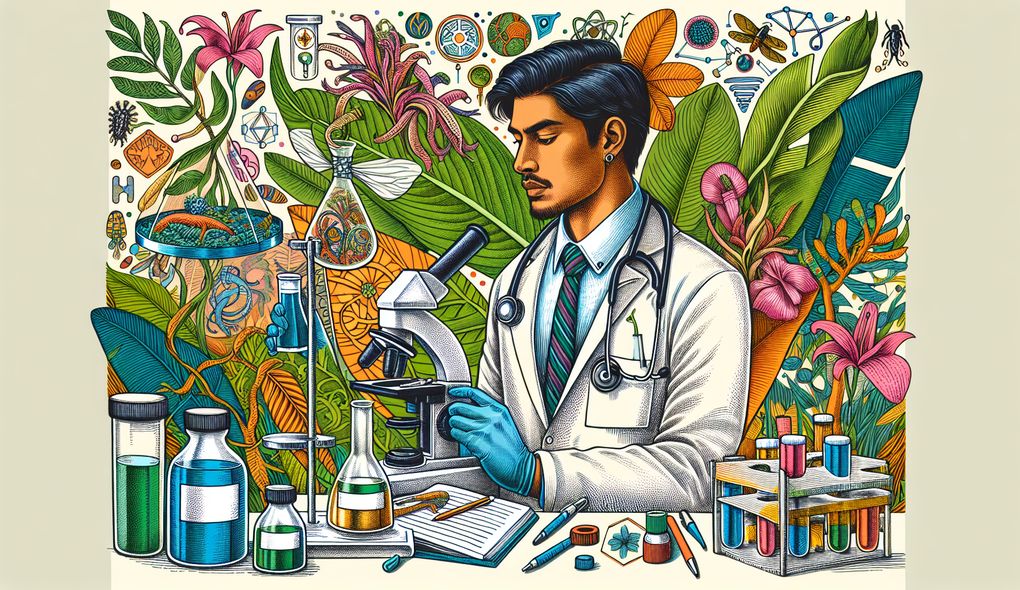Describe a time when you had to communicate complex medical information to a patient and their family.
INTERMEDIATE LEVEL

Sample answer to the question:
I had to communicate complex medical information to a patient and their family when I was working at a tropical medicine clinic. The patient had contracted a rare tropical disease, and it was important to explain the condition and treatment options to them and their family. I used simple language and visuals to help them understand the disease, its symptoms, and the potential complications. I also provided them with written materials to refer to later. We discussed the treatment plan, including medications and lifestyle changes, and I made sure to answer all their questions and address any concerns they had. It was a challenging conversation, but I was able to effectively communicate the information and provide support to the patient and their family.
Here is a more solid answer:
During my time at a tropical medicine clinic, I encountered a patient with a complex tropical disease. The condition had multiple stages, each requiring different treatment approaches. It was crucial to communicate this information clearly to the patient and their family. I used a combination of verbal explanations, visual aids, and written materials to simplify the complex medical concepts. To ensure their understanding, I encouraged questions and provided additional resources for reference. Throughout the process, I emphasized the importance of adherence to the treatment plan and explained potential complications that could arise. By maintaining open lines of communication, I established trust with the patient and their family, making them feel supported and empowered to actively participate in their care.
Why is this a more solid answer?
The solid answer provides more specific details about the complexity of the medical information and the communication strategies used. It also highlights the candidate's role in educating and supporting the patient and their family. However, it could be further improved by discussing the candidate's ability to work in diverse cultural environments and their knowledge of epidemiology and public health principles related to tropical medicine.
An example of a exceptional answer:
In my role as a Tropical Medicine Specialist, I faced a challenging situation when communicating complex medical information to a patient and their family. The patient had contracted a rare and highly contagious tropical disease, and it was essential to ensure their understanding of the disease, treatment options, and necessary precautions. I began by establishing rapport and addressing cultural and language barriers through the assistance of a medical interpreter. To convey the complex information, I utilized a variety of communication strategies, such as visual aids, simplified language, and analogies. I also involved the patient's family in the discussion to provide them with a holistic understanding of the situation. Recognizing the emotional impact of the diagnosis, I provided empathy and emotional support throughout the conversation. By actively listening and encouraging questions, I ensured that the patient and their family felt empowered and informed. This approach resulted in improved adherence to the treatment plan and a sense of trust between the healthcare team and the patient's family.
Why is this an exceptional answer?
The exceptional answer covers all the evaluation areas in the job description by discussing the candidate's ability to work in diverse cultural environments, their knowledge of epidemiology and public health principles related to tropical medicine, and their effective communication skills. It also highlights the candidate's empathy, emotional support, and their role in establishing trust and improving adherence to the treatment plan. The answer includes specific details about the communication strategies used and the outcomes achieved.
How to prepare for this question:
- Familiarize yourself with common tropical diseases and their treatment approaches.
- Develop your communication skills, particularly in effectively conveying complex medical information to patients and their families.
- Gain experience in working with diverse populations to better understand cultural nuances and tailor your communication accordingly.
- Stay updated with the latest research in tropical medicine and public health principles.
- Practice active listening and empathy to provide emotional support to patients and their families.
- Prepare examples from past experiences where you successfully communicated complex medical information to patients and their families.
What are interviewers evaluating with this question?
- Strong diagnostic and clinical treatment skills for tropical diseases.
- Knowledge of epidemiology and public health principles related to tropical medicine.
- Ability to work in diverse cultural environments and communicate effectively.

